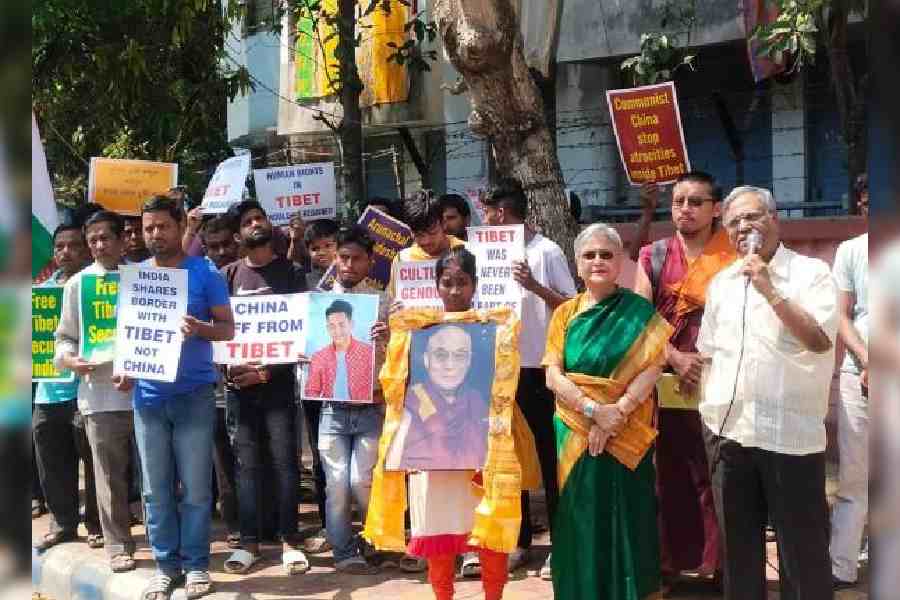To mark the 64th Tibetan Uprising Day on Sunday, protesters, which included Tibetan nationals, gathered outside the Chinese consulate in Salt Lake to raise their voices against Beijing’s alleged human rights violation and cultural genocide in Tibet.
Led by the Ganasamannay Kolkata and Paschim Banga Buddhijibi Sabha, two voluntary organisations dedicated to raising awareness about Tibet, the protesters demonstrated against the “clinical aggression of China across the globe” while demanding political and cultural independence of Tibet.
Armed with banners and posters, the protesters demanded an end to alleged industrial exploitation, cultural invasion and religious genocide in Tibet.
“The Tibetan uprising (also known by other names) began in Tibet’s capital Lhasa on March 10, 1959, when the people of Tibet revolted against the People’s Republic of China (PRC) apprehending that the Chinese authorities intended to detain the 14th Dalai Lama,” Ruby Mukherjee, the managing trustee of Ganasamannay Kolkata said.
Although there were allegations of thousands of Tibetans being killed during the 1959 uprising, official statements from the Chinese government remain scarce on the matter.
Speaking on the occasion, Tibetan national Wen Tharchen Thupten, who fled from Tibet in 2014 because of Chinese torture, said: “I was born and brought up in Tibet but I was forced to leave my motherland because we were denied our right to speech and were not allowed to practise our religion.”
Thupten believed this Chinese aggression was because the communist government wanted to use natural resources for their benefit.
“The Tibetan nomads are forced into urban areas so that the Chinese government can take control of the grasslands,” the director of the translation department at Sera Jey monastery in Mysore said.
According to police, around 50 protesters stood outside the Chinese consulate with banners and raised slogans.
“They protested outside the Chinese consulate office for two hours and left the place peacefully,” an officer present on the spot said.
Speaking on the occasion, BJP leader Bimal Sankar Nanda slammed the then Congress government’s allegedly faulty external affairs policy.
“We should have been more proactive when China was trying to control Tibet, which shares borders with India.
By controlling Tibet, the communist government is getting the chance to create disturbances in the bordering areas of our country,” Nanda said.










